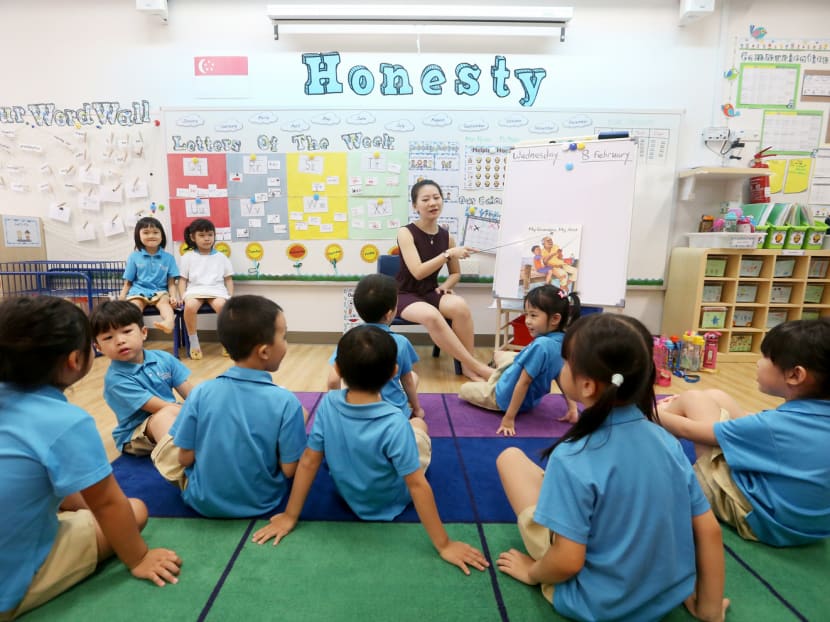Govt to oversee two-thirds of pre-school sector by 2023
SINGAPORE — By 2023, around two-thirds of the early childhood education industry will be controlled by the Government, Social and Family Development Minister Tan Chuan-Jin said yesterday.

The move to control two-thirds of the pre-school sector will allow the Government to ‘influence the space better’, particularly when it comes to managing the costs of early childhood education. Photo: Koh Mui Fong
SINGAPORE — By 2023, around two-thirds of the early childhood education industry will be controlled by the Government, Social and Family Development Minister Tan Chuan-Jin said yesterday.
This segment includes pre-schools under the Anchor Operator (AOP) and Partner Operator (POP) schemes — which dole out grants and require operators to commit to quality improvements, among other things — as well as kindergartens with the Ministry of Education (MOE).
Mr Tan told TODAY that this move would allow the Government “to influence the space better”, particularly in managing the costs of early childhood education.
It is also planning to increase the number of teachers in the early childhood education sector — to recruit about 4,000 more by 2020.
At the National Day Rally speech on Sunday, Prime Minister Lee Hsien Loong said that 40,000 places in pre-schools would be added by 2022, bringing the total number to about 200,000.
The Government will also increase the number of MOE kindergartens significantly — from 15 to 50 in the next five years — and set up a new national training institute for early childhood educators to bolster the quality of teaching.
Mr Tan said that there is a need to build “the best ecosystem possible”, and pre-school education needs to be accessible, affordable, and of good quality. Costs could be better managed “in a fairly direct fashion”, such as with subsidies, and schools that cater to families of various income levels, he added.
On concerns from smaller operators that the Government’s greater involvement might squeeze them out of the market, Mr Tan said that he understood their worries, but there are small operators “who are very good at what they do”. “They may not be able to ‘scale’ it, but they occupy a niche area (in the market) and there is strong demand for that,” he said.
“We believe that some element of choice (is) important, but that’s something we leave it to (players in) the sector to organise among themselves.”
One possibility might be for them to collaborate with the anchor pre-school operators who are given grants by the authorities to lower their operating costs under the AOP scheme.
He stressed that the “key thing is to make sure there is accessibility and affordability for parents”.
Mr Tan noted that parents need to play a role as well in supporting the teachers, and to build a “constructive relationship” with them.
This helps to attract and retain talent beyond incentives such as good remuneration and opportunities for development and growth.
On Sunday, PM Lee also said at the rally that the KidStart programme — an early intervention programme to help children from low-income and vulnerable families — could be enhanced.
One consideration would be to involve the community.
Mr Tan proposed, for example, that companies and volunteers could help run some of the KidStart programmes under the pilot.
As the programme is still in the early stage, the Ministry of Social and Family Development may measure and track the outcomes of the pilot by looking into the physical, emotive and cognitive developments of the child, he said.









